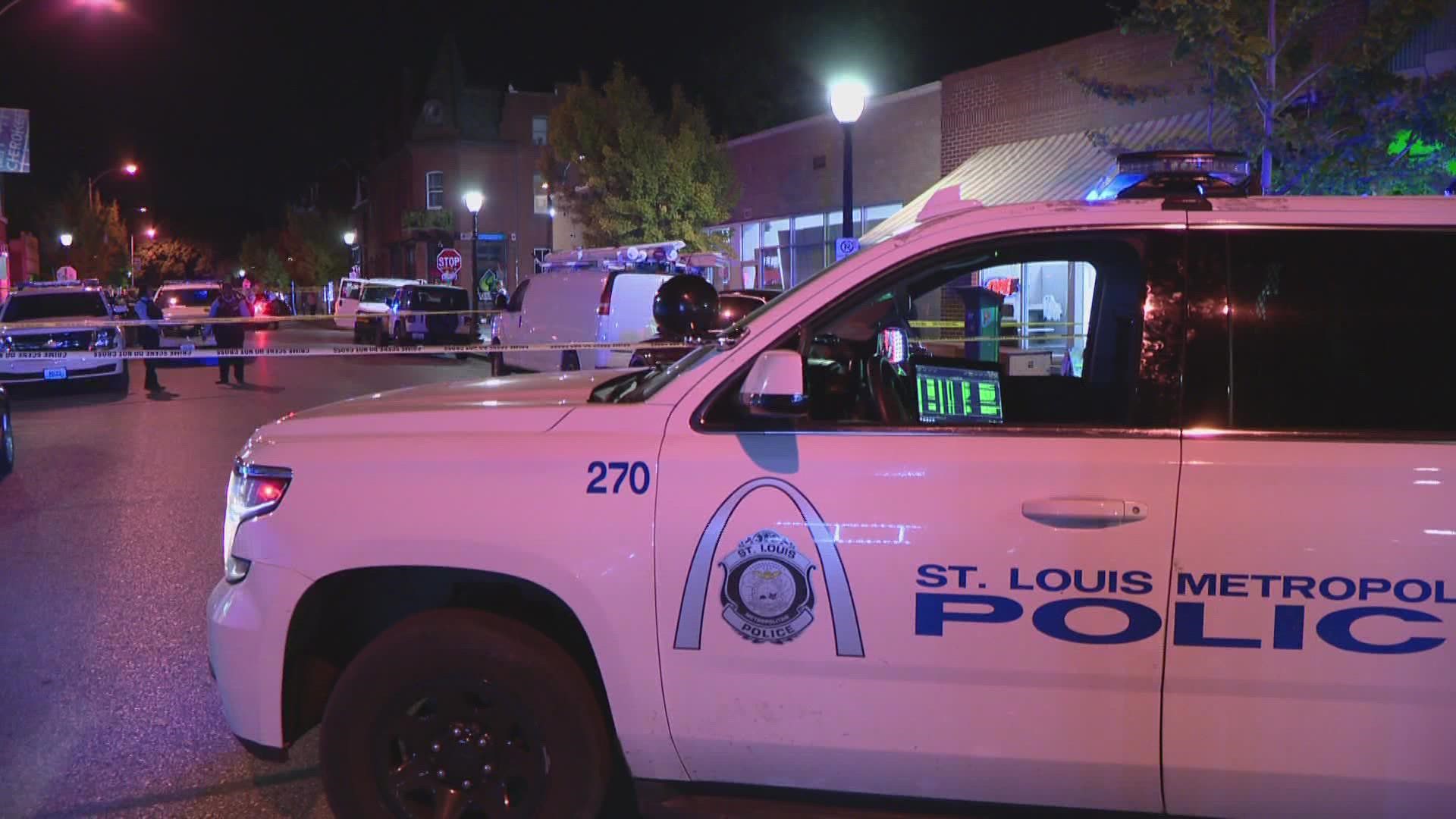ST. LOUIS — Advocates are pushing for change as we head into 2023, after a violent year across the City of St. Louis.
Anti-violence advocates said St. Louis is at a pivotal point right now and everyone has a role in making our community better and safer.
Serena Muhammad with St. Louis Area Violence Prevention Commission and the St. Louis Mental Health Board Deputy Director described the lives lost in 2022 due to gun violence as 'way too many.'
"When we start number watching, we forget that those are individuals, those are families, those are neighborhoods that have been impacted, so that’s an extraordinary amount of people that have been impacted by something like this," she said.
Yellow crime tape and flashing blue lights are two things that the people of St. Louis shouldn't have to be used to, but they are.
Muhammad believes the problem is getting worse because many people don't see the direct impact if it's not their family member or friend.
"We've become comfortable with the idea that there are going to be murders. We've normalized it. Some of us have become desensitized to it," she said.
According to police data, as of New Year's Eve afternoon, the City of St. Louis had 198 homicides. That's nearly the same as in 2021 when 200 people lost their lives to gun violence.
There's a trend from the past year though, that sticks out to many, including Muhammad.
"We have a disproportionate number of young people who have been impacted by gun violence. Either as perpetrators or as victims and what we know is when you think about young people, they don’t necessarily have the decision-making skills, the conflict resolution skills and a lot of times when they resort to violence it’s because they weren’t able to think through other alternatives or to really just problem solve," she said.
According to 5 On Your Side data, 140 children under the age of 17 were victims of gun violence in 2022. 18 of them died.
James Clark, Public Safety Vice President for the Urban League of Metropolitan St. Louis, said it's going to take a comprehensive approach.
"We're at a very pivotal point right now, very pivotal point because the culture and the mentality of crime and violence is seeping into the mentality of our young people," he said.
Clark said there needs to be a change to take the focus off of the data and into peoples' homes.
"We have the thinkers, now we’ve got to put on the gloves, and we have to get into the neighborhoods and deliver the resources to families and individuals who need the help the most," he said.
Clark believes there are organizations across the city doing ground-breaking, effective work, but it's time to scale up as we head into the New Year.
"If we don't interrupt that thought, if we don't interrupt that culture, it's going to continue and it's going to get more and more diabolical," he said.
According to Clark, corporations are providing much-needed support at the neighborhood level too.
"The neighborhood approach is gaining momentum. Now, St. Louis, we’ve got to double and triple down on this because it works. We have analyzed this, we have come up with evidence-based practices, that have marginal success. We need a whole new paradigm now that starts in the neighborhood, on the front porch. Now we’ve got to reach into the living room and the quicker we can do that; St. Louis can become a national model because we have the wheel to do it. We just now have to be willing to do it," he said.
The Urban League has multiple programs in place that are showing success in neighborhoods, including the 'Serving Our Streets Program.'
Clark said the pieces are in place to be successful, we just have to get the ball rolling.
"We have reached a point of what I call analysis paralysis. We’ve analyzed this problem; I’ve watched it for the past 30 years. We have a mountain of data. We understand the social determinants now, we understand, and we’ve watched young people go from being at risk to now being immersed in risk, so our response has been too slow," he said.
According to Muhammad, the St. Louis Area Violence Prevention Commission will be focused on three things in 2023. One of them will be responding to non-fatal shootings.
"We hear about the homicides, you just talked about the number of homicides. For every homicide there's 10 people who survived, there's 10 assaults and that's an opportunity to step in and stop that cycle of violence, so really focusing in on how you help people recover from gun violence, heal from that trauma, so it doesn't perpetuate, and we end up having retaliation and other things as a result of that incident," she said.
The organization is also going to focus on providing resources for communities and working with the systems, so people impacted by gun violence will have the support they need to recover.

